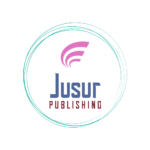The publishing industry in the Middle East has experienced significant growth and transformation over the past few decades. As the region undergoes social, cultural, and economic changes, the publishing landscape has evolved to reflect these shifts.
Growth and Expansion
The Middle East has witnessed a remarkable expansion in the publishing sector. Increased literacy rates, growing urbanization, and a rise in disposable income have contributed to the increased demand for books and other reading materials. Several Arab countries have made significant efforts to promote education and literacy, resulting in a larger readership base. This growth has led to an increased number of publishing houses, bookstores, and literary events across the region.
Linguistic Diversity
The Middle East is a linguistically diverse region, with Arabic being the predominant language. However, there are also significant populations speaking other languages. This linguistic diversity poses both challenges and opportunities for the publishing industry. Publishers must cater to the diverse linguistic backgrounds of the population, translating and publishing works in multiple languages to reach a wider audience.
Copyright and Piracy
Intellectual property rights continue to be a challenge in the Middle East. Unauthorized copying and distribution of copyrighted materials pose a significant threat to publishers' revenues. Strengthening copyright laws and enforcement mechanisms will be crucial to protect the rights of publishers and ensure a sustainable publishing ecosystem.
Cultural and Social Constraints
The publishing industry in the Middle East faces unique challenges due to cultural and social constraints. Publishers must navigate these constraints while striving to preserve intellectual choice and cultural diversity. Despite these challenges, there has been a growing trend of independent publishers and self-publishing platforms emerging, providing alternative outlets for authors to share their work.
Digital Transformation
The digital revolution has had a profound impact on the publishing industry worldwide, and the Middle East is no exception. E-books, audiobooks, and online platforms have gained popularity, allowing readers to access a vast array of content at their fingertips. Digital publishing has opened up new opportunities for authors, publishers, and readers alike. However, the digital transformation also presents challenges related to copyright protection, piracy, and fair compensation for authors and publishers.
Regional Cooperation and Collaboration
In recent years, there has been a growing emphasis on regional cooperation and collaboration within the Middle Eastern publishing industry. Literary festivals, book fairs, and translation initiatives have facilitated cultural exchange and the promotion of regional literature. Organizations such as the Sharjah Book Authority (UAE), the Arab Publishers Association, and the International Prize for Arabic Fiction have played a crucial role in fostering collaboration and elevating the visibility of Middle Eastern authors on the global stage.
The publishing industry in the Middle East is undergoing a dynamic transformation, driven by a growing readership, linguistic diversity, digital advancements, and increased regional collaboration. Despite challenges such as copyright piracy and cultural constraints, the industry is adapting and finding innovative ways to overcome these obstacles. As the Middle East continues to evolve, the publishing industry holds tremendous potential for growth, creative expression, and the celebration of diverse voices and narratives. By embracing digital platforms, nurturing regional talents, and fostering an environment of intellectual choice, the Middle Eastern publishing industry can forge a vibrant and sustainable future.
